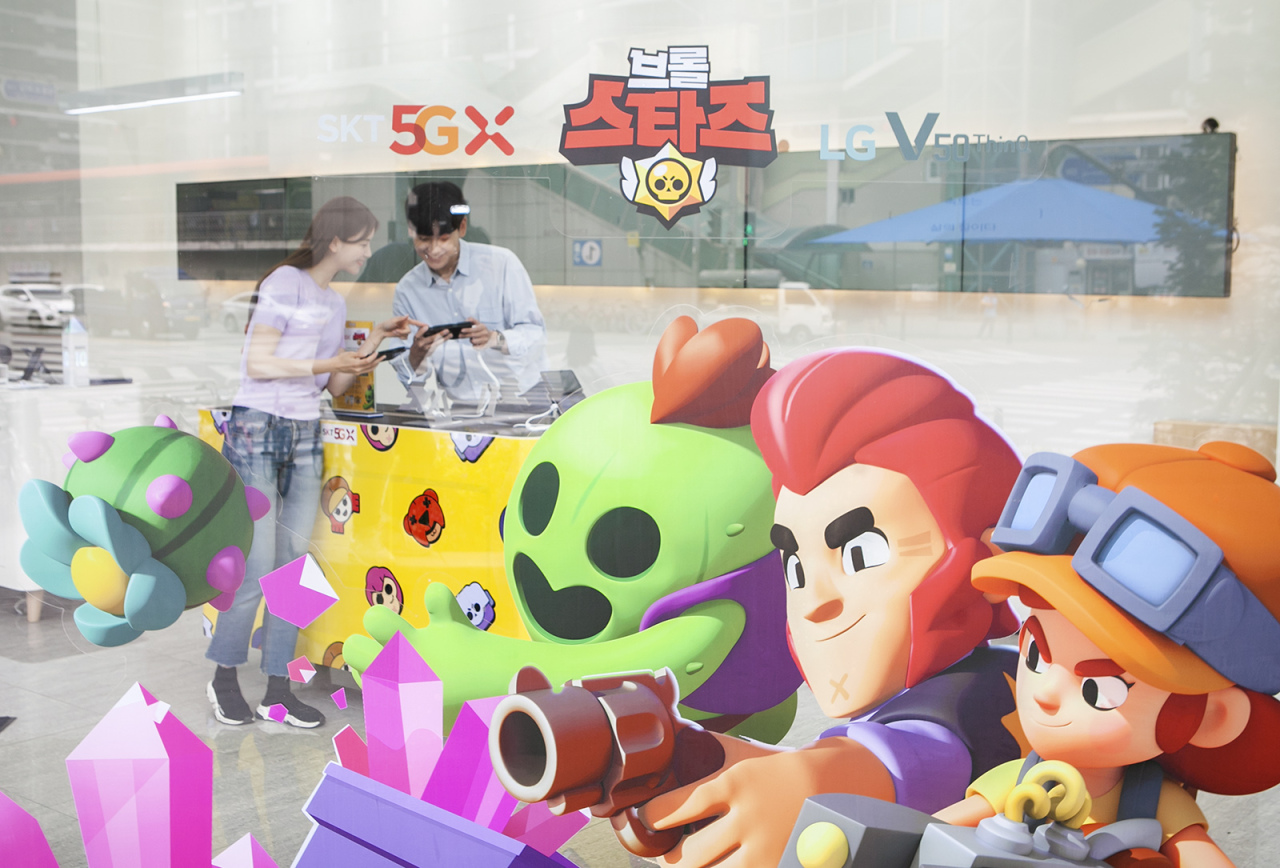Confusion escalated Monday in the aftermath of World Health Organization’s adoption of video game addiction as an official disease.
While South Korea’s Ministry of Welfare said it will form a body comprising relevant organizations including parents’ group, game industry, psychiatric experts and legal bodies by June to draw up new policies, the Ministry of Culture said it will raise objections to WHO’s decision.
The 194 member states of WHO had unanimously agreed to adopt the 11th revision to the International Classification of Diseases (ICD-11) at the 72nd World Health Assembly held in Geneva, Saturday. The ICD-11 goes into effect in January 2022.
Park Seung-beom, director of Game Content Industry Division at the Culture Ministry, said Monday it would fight the WHO decision, as pathologizing dependence on games “lacks reasonable scientific validation.”
 |
SK Telecom and Supercell`s "Brawl Stars" 5G experience zone (SK Telecom) |
He said the ICD-11 remains merely a guideline, and sufficient social consensus must be reached for domestic policy application.
In order for it to take effect, a revision has to be made to the Korea Informative Classification of Diseases which is under the national statistics body.
The Culture Ministry said it would not join the discussion body formed by the Welfare Ministry and instead called for separate discussions under Statistics Korea.
Its subsidiary organization, Korea Creative Content Agency, has joined the committee of 89 organizations opposing the application of ICD-11. The committee members include labor unions of game companies Nexon, Smilegate, universities with curriculum on game developing and related associations.
The committee will hold a press event Wednesday at the National Assembly to outline its protest against the WHO decision and introduce new measures to ameliorate the prejudice sometimes associated with gaming.
 |
Netmarble's upcoming mobile game "BTS World" (Netmarble) |
The Welfare Ministry, meanwhile, said its consultative body will comprise experts from the medical sector and other interested parties. In Korea, due to the regulatory processes, the classification may come into force around 2026, the ministry added, seemingly acting more in favor of parents, educators and some civic groups who are advocating the designation of gaming disorder as a disease.
Globally on Monday, a joint statement by game associations from Korea, North America, Europe, Australia and New Zealand stressed the role of gaming in driving advancements in virtual reality, augmented reality, artificial intelligence, big data analysis and other cutting-edge technologies. The statement said appropriate guidelines on the right ways to enjoy educational and remedial gaming hold significance over psychological health and dementia prevention.
Meanwhile, a December 2018 report by the nation’s top researchers from Seoul National University asserting that the adoption of gaming disorder will incur roughly 10 trillion won ($8.5 billion) loss by 2025 is gaining fresh recognition by local media.
The report claims that when ICD-11 goes into effect, between 2023 and 2025 the domestic game industry will shrink 22.7 percent, overseas sales will decrease 16.9 percent and those working in the relevant fields will diminish 15 percent.
By Lim Jeong-yeo (
kaylalim@heraldcorp.com)









